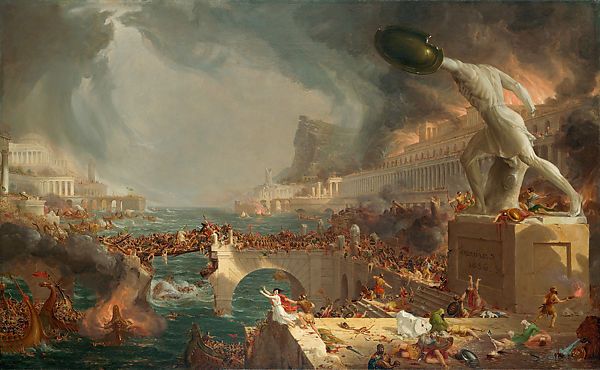Blockchain Startup Idea: Open Source Mapping for Autonomous Vehicles
I figured I would start a series of Startup Ideas as I have way too many to tackle and not enough money (also time) to see them through.[1] My main goal is to advance our advancement so that we can all live on a better[2] planet. Everything written here is a stream of consciousness or pastes from chats which are also stream of consciousness, so bear with me.
"What to watch: Since autonomy deploys in small pockets around the globe, shrinking the cost and size of sensors (some combination of cameras, lidar and motion-capture data) to create and update these maps is crucial to meeting market needs. The challenge is making the hardware footprint lighter and scalable, while also delivering sufficient accuracy."
Startup idea
Open source hardware sensors which use open source software to map areas to create a digital map dataset that Autonomous Devices/Companies can license (Ranging from Tesla and GM to Amazon drones). Mappers are incentivized and compensated using cryptocurrency which in turn has its value increased by the coins being bought/burned on the open market using the licensing fees. The reduced supply of coins on the open market will lead to an increase in the value of the outstanding tokens held by mappers.
Superficial Implementation Details
A distributed ledger is used to create, record and validate real-world map datasets by providing a platform to compensate individuals for mapping efforts. A distributed ledger capable of high transaction volume without fees would be essential to a mapping endeavor due to the volume of data and the need to ensure costs are relegated to only the electricity used for mapping, something like IOTA[3] comes to mind once it reaches maturity. Open source hardware (cameras, lidar sensors etc) for capturing data should be used to keep costs down while also ensuring everyone is using a standardized platform. The open source nature also ensures it remains relatively modular without a centralized source of control. That is, the "market" will determine what is of value to be mapped, as ultimately, the financial stakeholders are the mappers themselves.
Why cryptocurrency you ask? "Everything has to be blockchain this or blockchain that", just the new flavor of the month you say? The reason why distributed ledgers have such revolutionary potential is due to the fact that everything can be traced and validated in a trustless manner. Combine this with the financial incentive provided by cryptocurrencies and you create an economic machine to drive forward goals for actors that are both aligned and incentivized to keep everybody honest. Yes that is extremely simplistic and could use many revisions. By using cryptocurrency you can reward users for mapping their surroundings whether they're out for a drive, walk, crawl etc. This data can be hashed and sent with corresponding GPS coordinates with the hash and timestamp recorded on the ledger with the mapping data stored elsewhere, as the ledgers cannot store the massive troves of data. Data would be stored on something like IPFS. Similar to Proof-of-Stake[4] mappers will be required to stake a certain amount of MapTokens™ which they can purchase on the open market to get started. Once they begin mapping they will begin mining or earning MapTokens for the more places they map.
One would think "well what's stopping someone from spoofing their GPS or giving bad mapping data". Good question and that's where the stake comes in. There will be many mappers, in other words, users driving, walking, and just generally doing the same thing as the first mapper. A consensus method can be developed/instituted whereby users who are found spoofing data will be penalized by not only losing the MapTokens which were earned but locked in an "escrow"-like account (in reality locked in a smart contract and only released when others validate their mapping) but also their initial stake. In other words, fraudulent mappers get penalized with the funds from the fine being distributed to the validator and combined fund. On the other hand, if the mapper has shown to be honest then the mapper and validators receive some share of MapTokens.
Dataset hosts will be those hosting the mapping data uploaded by the mappers and will be also compensated for hosting this data and distributing it out to those requesting it. Compensation for the dataset hosts will come from organizations licensing this mapping data. As mentioned, any self driving startup or large company may license this mapping data for their endeavors with proceeds going to dataset hosts for hosting/distributing the content along with autonomously buying up MapTokens on the open market ensuring that the dwindling supply of MapTokens increases the value of all tokens. Yes I know this needs more thought but my time here is also finite.
Random thoughts: Instead of traditional blocks/proof of work, there are real life 3d grids/voxels used for mapping. Each grid will provide a form of compensation. Some areas are more valuable than others depending on difficulty(cities, terrain etc).
Why?
Instead of centralizing that data in individual companies, we should all be able to both take ownership and share in it, after all, we're the ones doing the driving (for now) right? Make some extra money doing what you already do and contribute to world digitization. This also solves the problem of fragmented datasets which may have incorrect information where the consequences of bad data in an autonomous vehicle can mean lives lost.
Footnotes:
If I had the chance I would do any/all of them. If you don't think I'm blowing smoke I'd love to chat. ↩︎
Yes I know there is a lot of nuance here, but overall meaning cleaner, safer, smarter (yes I know one can argue how is smarter better but let's just leave it at more efficient use and allocation of resources) etc ↩︎
https://www.iota.org/ - The reason why I choose IOTA is that it can be used without an internet connection ↩︎
https://hackernoon.com/what-is-proof-of-stake-8e0433018256 ↩︎
Faolain Newsletter
Join the newsletter to receive the latest updates in your inbox.

